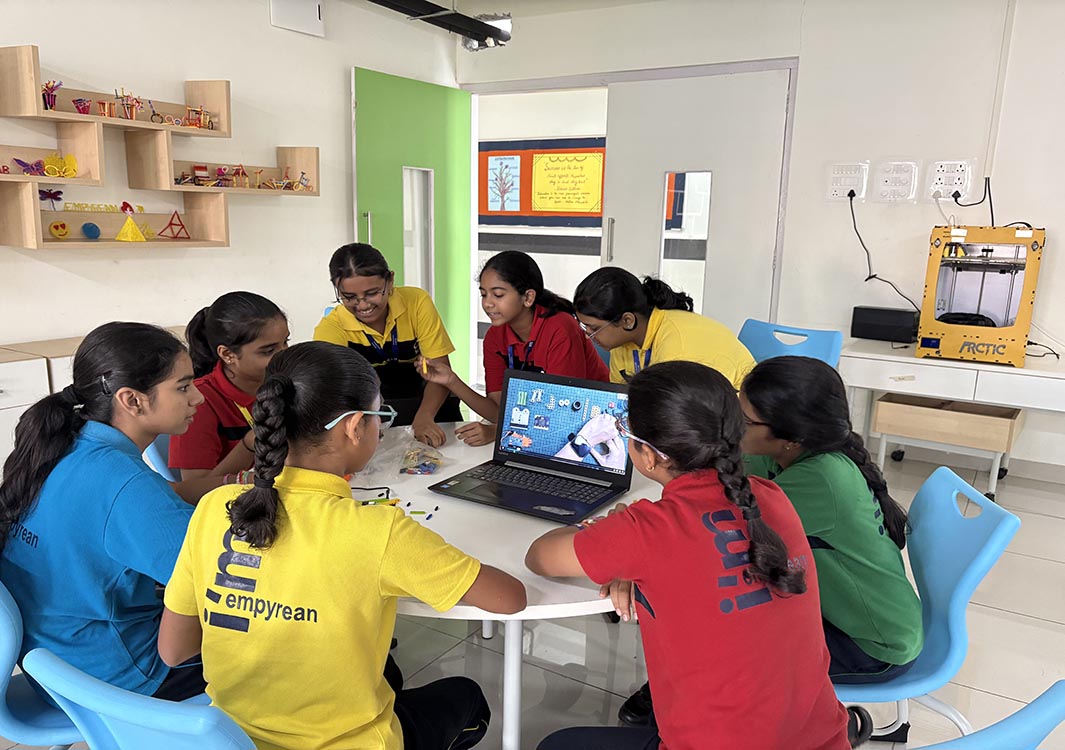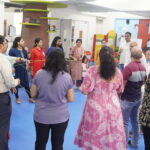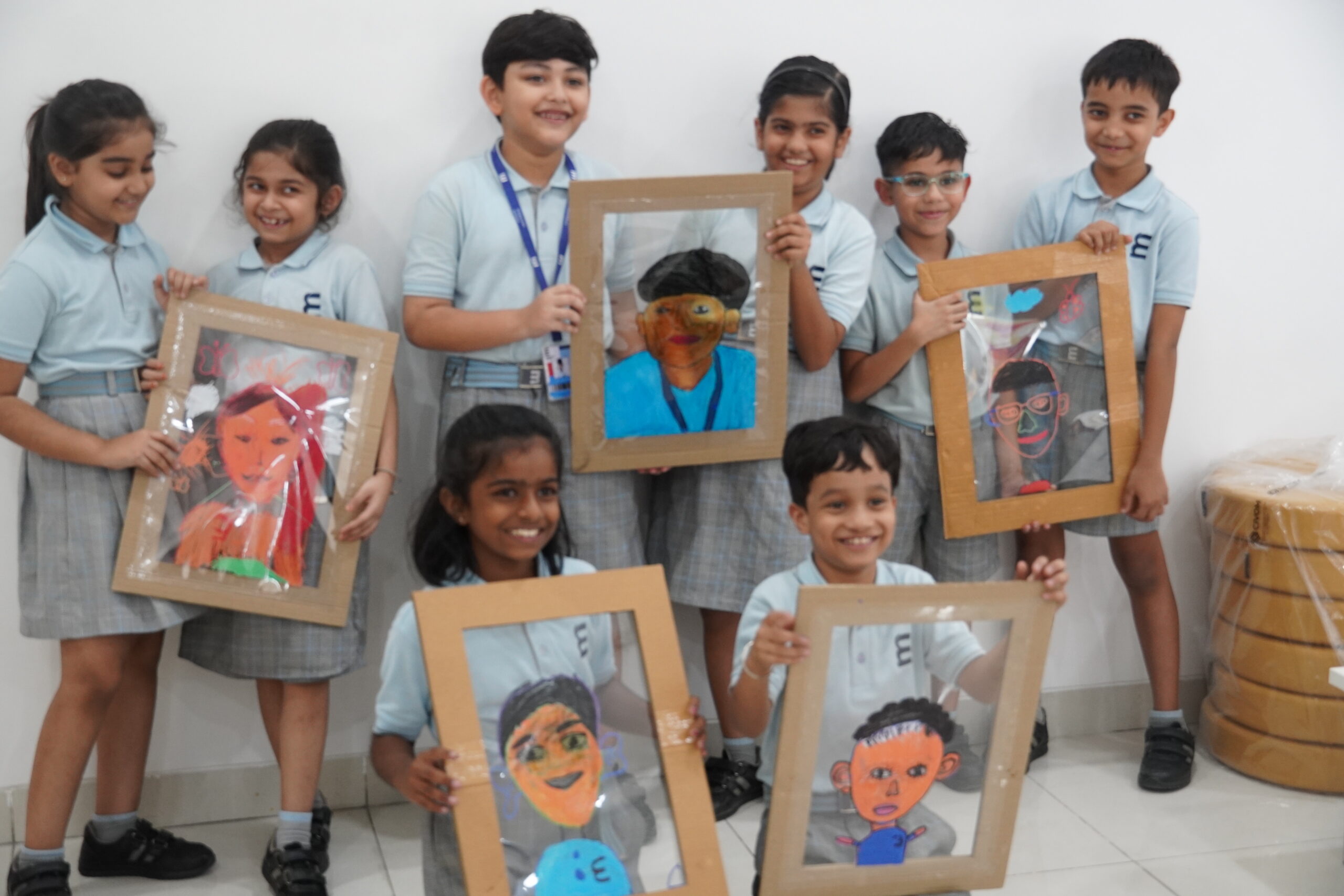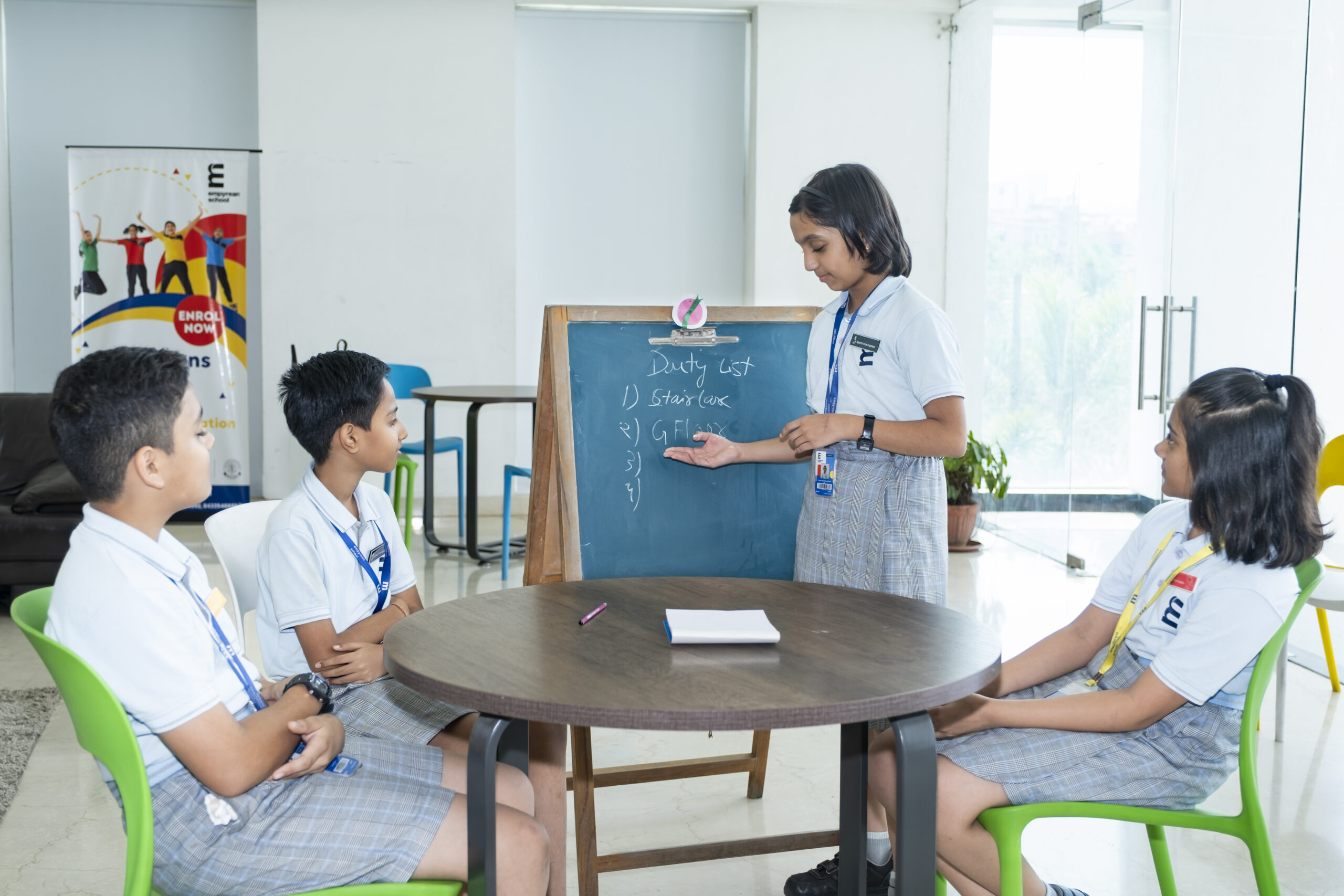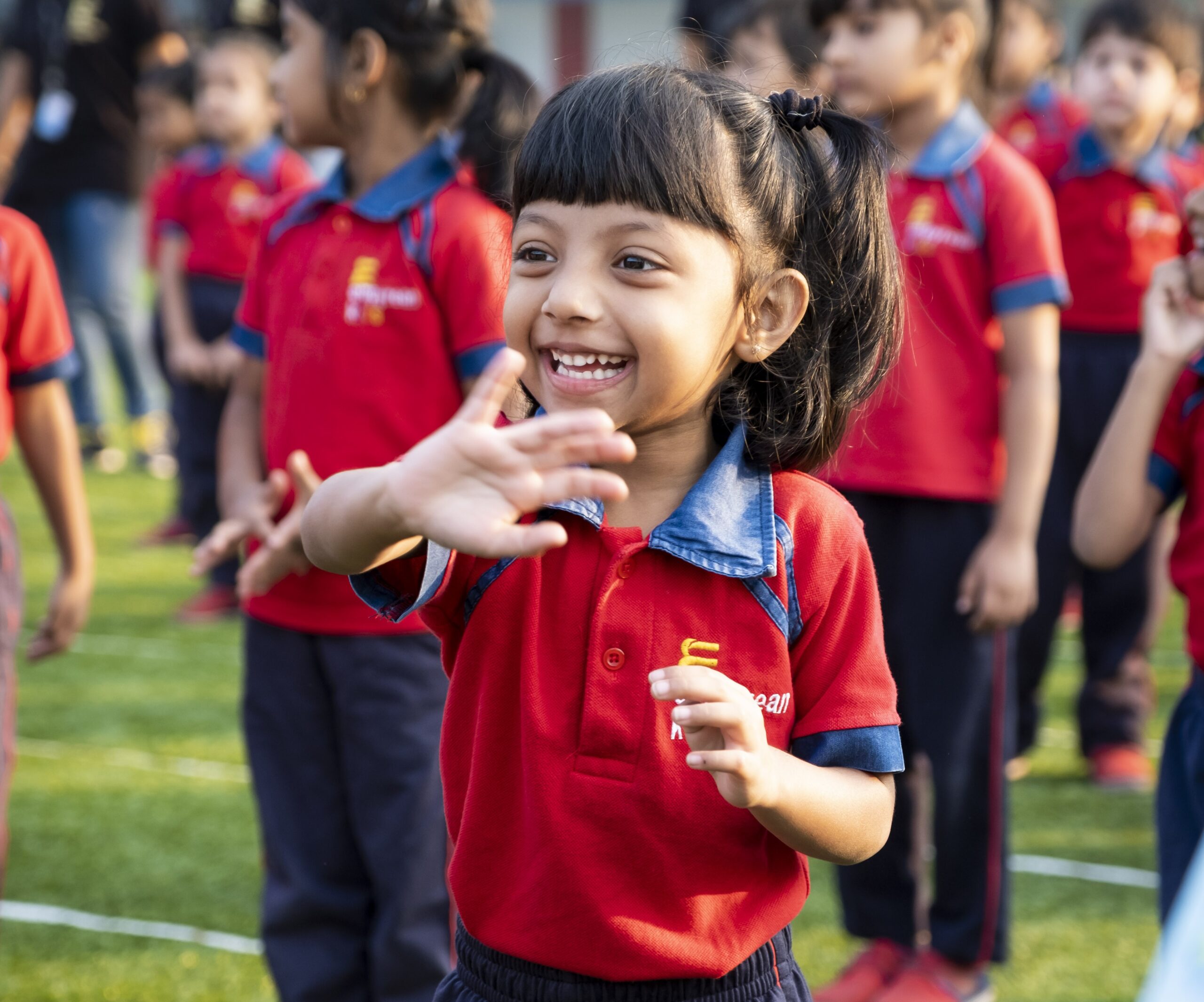When children are given space to create, something shifts. They begin to ask deeper questions. They start noticing how things work. They feel more capable, more curious, and more connected to the world around them.At Empyrean, we believe that education must go beyond what is taught. It must allow each learner to explore what is …
When children are given space to create, something shifts. They begin to ask deeper questions. They start noticing how things work. They feel more capable, more curious, and more connected to the world around them.
At Empyrean, we believe that education must go beyond what is taught. It must allow each learner to explore what is possible. This is why we are thrilled to introduce our Innovation Lab — a hands-on, minds-on space designed to bring our STEM programme to life, where children learn to transform ideas into action.
This new lab is filled with tools, kits, and materials that spark exploration. But more than that, it’s filled with intention. Every element of the space is designed to invite students into the process of discovery and real world innovation.
Why an Innovation Lab?
In today’s world, knowing how to adapt is just as important as knowing what to do. The Innovation Lab helps children build that mindset.
Here, students are encouraged to take ownership of their learning. They ask questions that matter to them. They think critically and creatively. They learn by doing, reflecting, and refining. This isn’t about memorising facts. It’s about building habits of thought that stay with them for life.
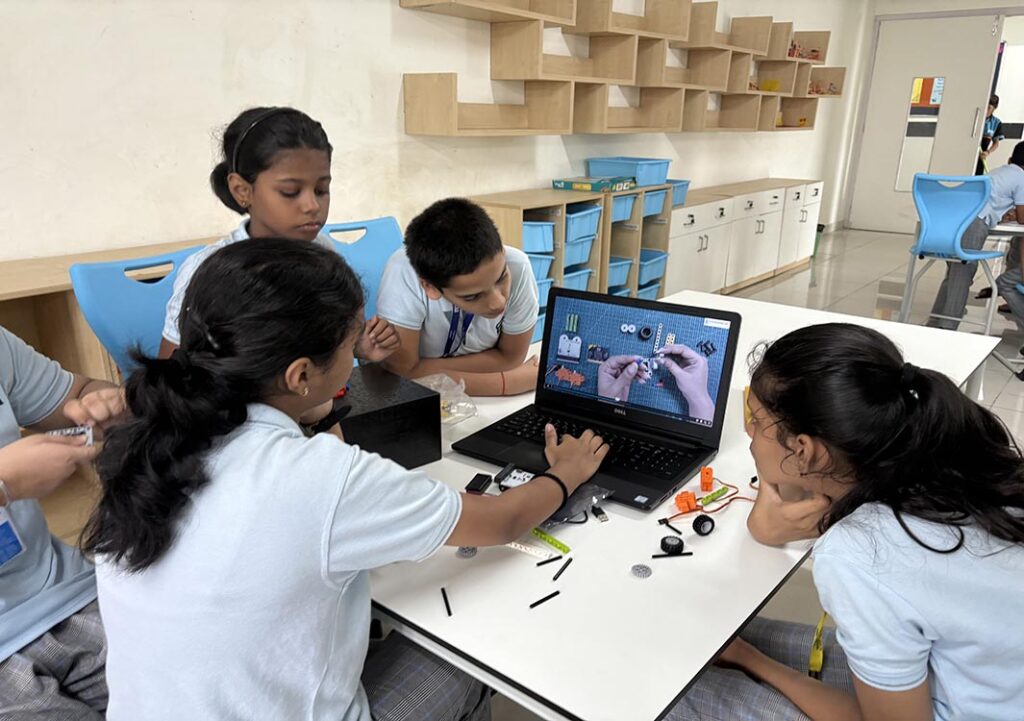
Turning Thinking into Doing
Inside the lab, students use age-appropriate kits and tools to explore coding, robotics, circuitry, and design. They build prototypes, test their ideas, and create real solutions to everyday problems.
A child might start by building a small machine using gears and levers. Another might use a Micro:bit to create a simple game or check temperature changes. These activities help children feel capable and confident.
By using their hands to build, students begin to see how their thoughts can shape the world. The lab supports learning in STEM—science, technology, engineering, and mathematics. But it does so in a way that feels playful and grounded.
A Grade 1 student might start by exploring simple machines. A Grade 4 student might light up a handmade greeting card using a paper circuit. A Grade 7 student could be writing a program that controls a tiny robot.
At every level, learners are supported to go deeper. They are encouraged to take risks, make changes, and try again. This is how resilience is built and not through lectures, but through experience.
The Power of Project-Based Learning
All activities in the lab follow the Project-Based Learning (PBL) cycle:
Ask → Design → Build → Test → Share
Each step encourages a different kind of thinking. Children learn to ask thoughtful questions. They sketch and plan. They bring their ideas to life, observe what works, and share what they’ve learned.
They also work together. Through collaboration, they learn how to listen, offer feedback, and solve problems as a team. These are essential life skills that will serve them in every part of their future.
A Glimpse of Innovation in Action
Here’s a peek into the kinds of projects our students have recently worked on:
- Grade 3 – Magic Straws
Students explored the basics of engineering by building shapes and towers using colourful snap-fit straws. They learned how different forms affected strength and stability—and how to experiment safely. - Grades 4–5 – Paper Circuits
Using conductive tape, LEDs, and batteries, students brought paper to life. They created glowing cards that combined design with electricity. As they built, they understood how a simple switch could control a flow of current. - Grade 6 – Mechatron Kit
Here, learners combined gears, sensors, and motors to create small, functioning robots. They explored how mechanical parts interacted, and how automation could respond to signals and commands. - Grades 7–8 – Micro:bit Coding
With pocket-sized computers, students wrote code to create mini games, smart tools, and devices that interacted with their environment. They were introduced to real-world concepts like the Internet of Things, all through joyful experimentation.
Why This Matters
We are helping our children get ready for a future that is still taking shape. They may one day work in jobs that do not exist yet. This future will need people who can think, imagine, and take action.
The Innovation Lab helps children get ready for the future. It gives them a space to try, make mistakes, and try again. It also lets them express their ideas—not just by speaking, but by building and creating things.
Most of all, it shows them that learning is not just something we do in school. It is something we live, enjoy, and make our own.
One of the most powerful things we witness in the lab is the quiet confidence that builds over time. A child who once hesitated to speak up now leads a team discussion. A student who was nervous about trying something new proudly demonstrates their invention to peers.
They show us that when learning feels safe, children are more willing to take bold steps. When their work is noticed, they feel proud and take charge. And when they have the right tools, they show us how much they can truly do.
What’s Next?
The Innovation Lab is only the start. In the coming months, we will keep adding new tools, fresh challenges, and more ways for students to link their ideas with the world around them. From working together on group projects to solving real-life problems, there is a lot more ahead.
But our goal will stay the same: to support learners who are skilled, kind, and full of ideas. We hope you’ll keep following along with us. We will be sharing updates, photos, and stories from the lab. We can’t wait to show you what our young creators come up with next.
IN Closing
At Empyrean, we believe that every child is an innovator at heart. Sometimes they just need the right space to explore what they’re capable of. The Innovation Lab is one such space. It’s where thinking becomes doing, where play becomes purpose, and where learning comes alive.
We look forward to seeing how the Innovation Lab grows alongside our students. As new tools
and ideas come in, the space will continue to evolve. This is one step in our ongoing commitment to help children build real-world skills through meaningful, hands-on learning. More updates will follow in the months ahead.

